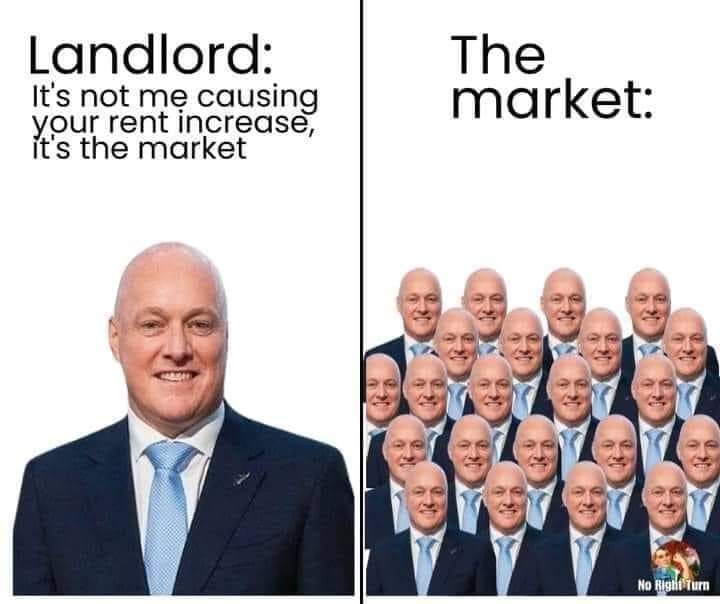this post was submitted on 09 Jul 2024
619 points (98.0% liked)
Stolen from Facebook
340 readers
1 users here now
founded 1 year ago
MODERATORS
you are viewing a single comment's thread
view the rest of the comments
view the rest of the comments

You would not be taxed on any improvements, only on the value of the land underneath it. Building improvements is a good thing and you shouldn't be punished for that. A 100% tax on land value would make ownership of that land essentially worthless, so you would only be taxed the amount that land could produce in rent.
So if I buy a house that's already been built then I'm not doing improvements to the land am I? I'm simply purchasing property.
But I'm not a rich person it took almost my entire life savings to buy this house why should I not pass it on to my children?
You bring up a valid point, any change that is implemented should have exceptions to avoid screwing ordinary people out of the fruits of their labor that were legitimately invested under the prevailing system. The longer answer is that house itself is an improvement even if you didn't build it and it should not be taxed, and you should be able to pass it on to your children without interference from anyone, but the land underneath it is a different matter. What if the value of the land has increased from $100,000 to $1,000,000 during the time someone owns it, even though they have made no improvements to it? Where does that increase in value come from? It comes from the work of the surrounding community. Is it right for one person to be able to capture a percentage of that? The goal of a land value tax is not to punish anyone, it is only to prevent landowners from either charging rent without adding value or realizing large capital gains, all at the expense of everyone else.